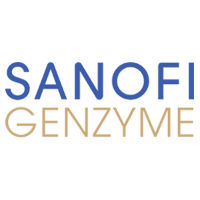预约演示
更新于:2026-03-01

Sanofi
更新于:2026-03-01
概览
标签
免疫系统疾病
其他疾病
肿瘤
单克隆抗体
小分子化药
纳米抗体
疾病领域得分
一眼洞穿机构专注的疾病领域
暂无数据
技术平台
公司药物应用最多的技术
暂无数据
靶点
公司最常开发的靶点
暂无数据
| 排名前五的药物类型 | 数量 |
|---|---|
| 小分子化药 | 181 |
| 预防性疫苗 | 86 |
| 单克隆抗体 | 53 |
| mRNA疫苗 | 18 |
| 联合疫苗 | 14 |
关联
485
项与 Sanofi 相关的药物靶点 |
作用机制 BTK抑制剂 |
原研机构- |
在研适应症 |
非在研适应症 |
最高研发阶段批准上市 |
首次获批国家/地区 阿拉伯联合酋长国 |
首次获批日期2025-08-27 |
靶点 |
作用机制 AT III抑制剂 |
在研机构 |
非在研适应症- |
最高研发阶段批准上市 |
首次获批国家/地区 美国 |
首次获批日期2025-03-28 |
3,956
项与 Sanofi 相关的临床试验NCT06694025
Post-marketing Surveillance Study for the Safety of Efluelda Tetra Pre-filled Syringe, a High-dose Quadrivalent Influenza Vaccine Administered to Adults 65 Years or Older in the Republic of Korea.
To investigate the incidence of adverse events (AEs) and adverse drug reactions (ADRs) occurred following administration of Efluelda Tetra in adults aged 65 years or older under routine clinical practice, as per approved indications.
The study duration of each participation will be approximately 28 to 35 days. In the event that Visit 2 is not made, the study duration would be extended to 36 to 42 days.
The study duration of each participation will be approximately 28 to 35 days. In the event that Visit 2 is not made, the study duration would be extended to 36 to 42 days.
开始日期2026-10-01 |
申办/合作机构 |
NCT06832865
A Phase 2 Study of Elranatamab in Combination With Isatuximab (ELISA) in Relapsed and Refractory Multiple Myeloma
This is an open-label phase 2 study of elranatamab in combination with isatuximab administered subcutaneously in patients with relapsed and refractory multiple myeloma (RRMM) who have received at least two prior lines of therapy and who have had previous treatment with both immunomodulatory drugs (IMiDs) and a proteasome inhibitor (PI). The subcutaneous injection method of isatuximab administration, including the device used to administer isatuximab, is investigational.
开始日期2026-08-01 |
申办/合作机构 |
NCT07222189
A Multinational, Multicenter Extension Study to Investigate the Long-term Safety, Tolerability and Efficacy of Balinatunfib in Adults With Crohn's Disease or Ulcerative Colitis
LTS19689 is a multinational, multicenter extension study to evaluate the long-term safety, tolerability and efficacy of balinatunfib in participants with Crohn's disease (CD) or ulcerative colitis (UC) who completed the 52-week treatment period (on balinatunfib or placebo) in the parent studies, SPECIFI-CD (DRI18212) or SPECIFI-UC (DRI17822), respectively.
* The primary objective of this study is to assess the long-term safety and tolerability of different doses of balinatunfib in participants with CD or UC, as measured by the number and percentage of participants with CD or UC with treatment emergent adverse events (TEAEs), serious adverse events (SAEs) and adverse events of special interest (AESIs) during the study period.
* The study will consist of 2 independent cohorts through the study given the distinct nature of each disease:
* CD Cohort: comprised of CD participants enrolled from SPECIFI-CD (DRI18212).
* UC Cohort: comprised of UC participants enrolled from SPECIFI-UC (DRI17822).
* The study will consist of the following study periods for each cohort:
* A Double-Blind (DB) treatment period of up to 104 weeks for eligible participants from the DB maintenance phases of the respective parent studies.
* An Open-Label (OL) treatment period of up to 104 weeks for:
* Eligible participants from either the DB or OL periods of the parent studies,
* Eligible participants who meet escape criteria at any time during the DB period of the LTS19689.
* A 2-week follow-up period following the End of Treatment (EOT). The study duration will be up to 107 weeks, with the treatment duration up to 104 weeks.
* The primary objective of this study is to assess the long-term safety and tolerability of different doses of balinatunfib in participants with CD or UC, as measured by the number and percentage of participants with CD or UC with treatment emergent adverse events (TEAEs), serious adverse events (SAEs) and adverse events of special interest (AESIs) during the study period.
* The study will consist of 2 independent cohorts through the study given the distinct nature of each disease:
* CD Cohort: comprised of CD participants enrolled from SPECIFI-CD (DRI18212).
* UC Cohort: comprised of UC participants enrolled from SPECIFI-UC (DRI17822).
* The study will consist of the following study periods for each cohort:
* A Double-Blind (DB) treatment period of up to 104 weeks for eligible participants from the DB maintenance phases of the respective parent studies.
* An Open-Label (OL) treatment period of up to 104 weeks for:
* Eligible participants from either the DB or OL periods of the parent studies,
* Eligible participants who meet escape criteria at any time during the DB period of the LTS19689.
* A 2-week follow-up period following the End of Treatment (EOT). The study duration will be up to 107 weeks, with the treatment duration up to 104 weeks.
开始日期2026-05-12 |
申办/合作机构 |
100 项与 Sanofi 相关的临床结果
登录后查看更多信息
0 项与 Sanofi 相关的专利(医药)
登录后查看更多信息
4,521
项与 Sanofi 相关的文献(医药)2026-02-01·JOURNAL OF NEUROLOGY
Data-driven disease subgrouping in ALS: a multicenter cerebral functional connectivity study
Article
作者: Koppelmans, Vincent ; Luk, Collin ; Parnianpour, Pedram ; McLaren, Donald G ; Dey, Avyarthana ; Seres, Peter ; Baumeister, Tobias Robert ; Kalra, Sanjay ; Evans, Karleyton C
BACKGROUND:
In a clinically-heterogeneous disease such as ALS, it is crucial to identify early disease changes that impair real-world functioning. The lack of consensus across clinical approaches, coupled with the subjectiveness of their evaluation, impedes our understanding of disease processes underlying early and advanced disease. This study presents neuroimaging as a potential supplementary approach that provides objectivity to the identification and evaluation of disease stage-specific ALS subgroups.
METHODS:
Cerebral functional connectivity and its association with clinical function was evaluated in 174 ALS patients and 165 healthy controls enrolled in the Canadian ALS Neuroimaging Consortium (CALSNIC). Participants were subgrouped using two approaches: (1) a data-driven hierarchical clustering of cerebral activation and 2) contemporary clinical criteria. The data-driven approach utilized data from resting-state functional magnetic resonance imaging. The clinical approach utilized three clinical subgrouping methods - two derived from trial enrollment criteria for the drugs Riluzole and Edaravone, and the third on the median disease progression rate of the patient sample.
RESULTS:
Each subgrouping approach identified two patient subgroups with different symptom durations, disease progression rates, and cognitive/motor/lung functions - albeit with differences across approaches. The data-driven approach identified greater spatial extents of cerebral connectivity alterations compared to the clinical approaches.
CONCLUSION:
Observations of clinical and cerebral connectivity differences were specific to the stratification approach. Given the ability of the data-driven approach to identify alterations in both clinical and cerebral function corresponding to disease stage, this approach presents a potential biomarker for patient stratification, clinical trial enrichment, disease and therapeutic monitoring.
2026-02-01·CLINICAL THERAPEUTICS
Analyzing Prescription Drug to Over-the-Counter Drug Switch Rejections: Understanding Regulatory Concerns, A Global Overview
Article
作者: Kolati, Sambasiva ; Restrepo, Sergio Moreno ; Rahman, Shahper ; Ateka, Aritz ; Lassoued, Zeineb ; Uliana, Tais ; Sourial, Kristie
PURPOSE:
Prescription-to-over-the-counter (Rx-to-OTC) switch applications face significant barriers, with many experiencing rejections despite potential public health benefits. The purpose of this article was to investigate the regulatory landscape and challenges associated with Rx-to-OTC switches, focusing on the reasons behind rejections and withdrawals across various countries. By examining unsuccessful switches and identifying potential solutions, this article aimed to provide insights into improving regulatory frameworks and enhancing access to safe and effective self-care options.
METHODS:
A qualitative analysis of 19 International Nonproprietary Names spanning 10 therapeutic areas was conducted across eight countries to identify and categorize the reasons for rejection of the switch of these medicines from prescription to nonprescription status.
FINDINGS:
The study identified concerns leading to the rejection of Rx-to-OTC switch applications, including safety issues, challenges in diagnoses and self-management, and behavioral risks. Inconsistencies in regulatory decisions were observed across different countries.
IMPLICATIONS:
The analysis identified opportunities to improve regulatory frameworks through risk-balanced approaches, innovative technologies, pharmacist-led models, and harmonized standards across regions. These opportunities could enhance access to self-care options while easing healthcare system burdens and ensuring safety.
2026-01-01·BMJ Open Respiratory Research
Exacerbation-related burden in patients with severe asthma in South Korea: a population-based cohort study
Article
作者: Pyun, Donghyun ; Suh, Hae Sun ; Lee, Yeon-Woo ; Bae, Eun Jin ; Choi, Junhyuck
Background:
The burden of severe asthma due to asthma exacerbation is increasing. However, recent studies identifying exacerbation-related disease burden among patients with severe asthma in South Korea are lacking.
Objective:
To evaluate the burden of asthma exacerbations in patients with severe asthma in South Korea.
Methods:
A retrospective cohort study using National Health Insurance data from 2016 to 2019 was conducted. Patients with severe asthma were defined as satisfying the following criteria: (1) having been prescribed ≥1 inhaled corticosteroid-long-acting β-2 agonist and long-acting muscarinic antagonist with a diagnosis of asthma; (2) having experienced ≥4 asthma exacerbation events within 1 year, after meeting the first criterion. Exacerbation was defined as a corticosteroid burst. Healthcare utilisation, direct medical costs and case fatality rates related to asthma exacerbations were identified during the follow-up period.
Results:
Outpatient visits accounted for 81.26% of all exacerbation events, followed by general ward hospitalisation (14.55%). The exacerbation-related costs were as follows: outpatient visit, $29.89; emergency room visit, $95.02; general ward hospitalisation, $1929.32; and intensive care unit admission, $7918.86. The case fatality rates were 2.65% for patients with asthma, 3.16% for patients who had exacerbations and 6.96% for patients who had exacerbations with hospitalisation.
Conclusion:
This study is the first population-based cohort study observing exacerbation-related burdens in patients with severe asthma, using recent data and generating real-world evidence. The results of this study can be used as evidence for further research on the burden of asthma and to inform decision-making in healthcare policy.
19,864
项与 Sanofi 相关的新闻(医药)2026-02-28
·医药代表
继续和小伙伴们分享跨国药企高管动态。
2 月 26 日,默沙东宣布,任命范柏睿(Brecht Vanneste)为默沙东印度公司下一任董事总经理,直接汇报于默沙东高级副总裁、亚太地区总裁 Andrew Otoo,并进入默沙东亚太区领导团队(APLT)。
此任命自 2026 年 3 月 1 日正式生效,范柏睿将常驻孟买,负责指导默沙东在印度的业务战略和市场拓展。
调任之前,范柏睿为默沙东中国肿瘤事业部负责人,当日,默沙东中国内部宣布了这个消息,印度《经济时报》、Pharmanewslive、Pharmabiz 等媒体也做了报道。
默沙东表示,范柏睿将接替现任负责人 Rehan A. Khan,全面负责默沙东在印度市场的业务运营与战略推进。此次任命正值默沙东在印度持续深化其肿瘤、疫苗及医院产品组合布局之际。
范柏睿拥有丰富的跨区域商业管理经验,曾任默沙东比利时和卢森堡董事总经理 ,在默沙东服务超 27 年之久,历任默沙东比利时对外事务负责人、欧洲和加拿大市场阿尔茨海默症产品总监、瑞士市场心血管产品区域营销负责人等职务。
2022 年 10 月 21 日,默沙东宣布中国肿瘤事业部负责人田瑀决定离开公司,加入另一家跨国药企,任命范柏睿接任默沙东中国肿瘤事业部负责人职务,自 2022 年 10 月 24 日生效,他将常驻上海,直接汇报于默沙东中国总裁田安娜(见 MRCLUB 历史消息:诺华、默沙东管理层变动,美纳里尼中国CEO确定)。
此次调任印度董事总经理,默沙东方面表示,印度是公司全球战略中的重要市场之一,未来将继续聚焦创新产品的引入、商业化能力建设以及与本地医疗体系的深度合作。
近年来,默沙东持续强化其全球重点市场的本地化领导团队,通过具备多元国际经验的管理者推动业务发展与组织升级。此次任命被视为公司在印度市场长期投入战略的一部分。
此次任命正值印度生物制药市场快速扩张之际,市场增长主要由对创新药物、疫苗及专科治疗方案日益增长的需求所驱动。作为董事总经理,范柏睿将负责使默沙东的产品与印度不断变化的医疗需求保持一致,强化与医疗领域相关方的合作,并在重点疾病领域扩大默沙东的业务版图。
印度业内观察人士指出,此次领导层更替彰显了默沙东在印度市场强化战略重点的承诺,这家跨国药企正持续加大在研发、市场准入及以患者为中心项目方面的投入,范柏睿的全球经验有望支持默沙东深化本地参与度,并在成熟及新兴治疗类别中推动长期增长。
P.S.需要红包封面的朋友,下面三个依然可以继续领取,领取时限截至 3 月 3 日~
近日热点阅读:
第11批国采,两家药企列入违规名单
一外企全球管理体系大调整
财报低迷,又一跨国药企更换CEO
这家药企副总裁,已被解除责令候查
七大跨国药企大佬新春拜年
马上进药!奖金多多!!
器械巨头,重组销售队伍
又一家日企,大幅缩减办事处
赛诺菲更换特药事业部负责人
春节百亿大单!丹纳赫拿下迈心诺
代表驻地双轨制,又一家宣布实施
财神到你家!
AI掀起全球裁员潮,制药业会是“重灾区”吗?
逢压必进,拜库神!
财神人人爱,库神才是真刚需
三年替代医生?马斯克预言引发医学大佬强烈回应
默沙东架构调整,两大高管均医药代表出身
第11批国采,25 省市公布执标时间
强生创新制药宣布潘昉玥离任
涉4家药企!国家市场监管总局听证公告来了
三大知名药企,节后高管变动
超3000人!晖致启动裁员计划
63亿!旭化成收购Aicuris
网红A司,风口加速扩招中
翰森制药急招核心岗搭建王牌团队
拜耳中国新春热招
最新药企内部招聘(2月27日更新)
#跨国药企在进博会
医药代表 伴您成长!
高管变更疫苗财报
2026-02-28
·医药专利
以前都是AI公司卖技术、卖服务给药企,现在反过来了。当算法遇见工艺,AI制药正在改写传统分工逻辑。
2月27日,药明合联(2268.HK)宣布与Earendil Labs达成8.85亿美元战略合作,向这家AI驱动的生物科技公司授权其自主研发的"WuXiTecan-2载荷连接子技术"。本次合作标志着双方将建立稳固的战略合作伙伴关系,通过将药明合联全球领先的ADC技术平台与Earendil Labs前沿的AI驱动的抗体发现能力深度融合,加速下一代ADC药物的开发进程,解决未被满足的医疗需求。 这桩交易释放出一个强烈信号:在ADC药物开发领域,拥有AI算法的公司正在向具备成熟工艺平台的传统生物药企"购买"实践技术,行业分工逻辑正在发生根本性反转。
从"卖算法"到"买工艺"
过去几年,AI制药公司的商业模式相对单一——向大型药企授权AI平台使用权,收取软件订阅费或里程碑付款。英矽智能与赛诺菲12亿美元合作、晶泰科技与辉瑞的十年战略合作,都是AI公司输出技术能力的典型案例。
但药明合联与Earendil Labs的合作模式截然不同。Earendil Labs作为华深智药的海外关联公司,拥有AI驱动的抗体发现能力,却选择向药明合联购买ADC载荷连接子技术的全球独家开发权。这种"反向操作"揭示了一个行业现实:AI可以加速靶点发现和分子设计,但无法替代复杂的工艺know-how。
药明合联的WuXiTecan-2技术平台经过多年实践验证,涵盖了从毒素-连接子设计到偶联工艺优化的全链条能力。对于Earendil Labs而言,通过授权获得这一成熟技术平台,意味着可以跳过漫长的工艺开发周期,直接推进其AI发现的双特异性抗体进入ADC候选药物研发阶段。
平台价值超越单点技术
这并非孤例。2024年以来,AI制药领域的合作模式正在经历结构性转变。晶泰科技在2025年8月与DoveTree达成近60亿美元的管线合作,其核心卖点不仅是AI算法,更是"AI+机器人"的端到端药物发现平台。英矽智能也在2025年11月与礼来达成超1亿美元合作,将Pharma.AI平台与礼来的疾病 expertise 深度结合。
这些交易的共同特征是:平台型技术正在取代单点算法,成为AI制药公司的核心竞争力。正如剂泰科技创始人赖才达所言,"产品先行,要有自己对外合作的管线,真正在临床上得到巨大突破,就能够带动商业价值"。
对于传统CRO和生物制药企业而言,这意味着新的机遇。药明合联凭借全球领先的CRDMO平台,不仅提供技术授权,还将全面支持合作项目中ADC各组分的CMC开发与生产工作。这种"技术授权+生产服务"的组合拳,正是传统生物药企对抗纯AI公司冲击的护城河。
重新定义"卖水人"与"淘金者"
在生物医药的"淘金热"中,CRO长期被视为"卖水人"。但药明合联与Earendil Labs的合作表明,当AI公司成为新的"淘金者",传统"卖水人"也可以反向输出核心技术,成为规则制定者。
这种角色反转背后,是AI制药行业从概念验证走向商业落地的必然选择。英矽智能联席CEO任峰曾指出,"一两年前业界更关注AI技术,现在则更看重制药方面的落地成果"。AI公司逐渐意识到,仅有算法无法完成药物开发的最后一公里,必须借助经过验证的工艺平台和生产能力。
2025年上半年,中国创新药对外授权交易总额已接近660亿美元,超过2024年全年水平。在这波出海浪潮中,AI制药公司与传统生物药企的"反向合作"正在成为新范式——不再是AI单向输出技术,而是双方基于各自优势进行深度能力整合。本次合作标志着双方将建立稳固的战略合作伙伴关系,通过将药明合联全球领先的ADC技术平台与Earendil Labs前沿的AI驱动的抗体发现能力深度融合,加速下一代ADC药物的开发进程,解决未被满足的医疗需求。
结语
药明合联与Earendil Labs的8.85亿美元合作,标志着AI制药进入"务实主义"阶段。当AI公司开始购买生物工艺技术,说明行业正在回归制药本质:算法是加速器,但工艺才是护城河。对于传统生物制药企业而言,与其担忧AI颠覆,不如将多年积累的工艺平台转化为可授权的核心资产——在这场智能化转型中,实践技术的价值只会愈发凸显。
2026-02-28
·医药专利
1新药定义为含中国首次上市的活性成分,含原研在国外已批准在申报进中国的化药5.1类和生物药3.1类,不含非原研仿制或进口的化药3类、生物药2类
013 罗伐昔替尼片(2026.02.28) 骨髓纤维化
近日,国家药品监督管理局批准正大天晴药业集团股份有限公司申报的1类创新药罗伐昔替尼片(商品名:安煦)上市,该药适用于中危-2或高危的原发性骨髓纤维化(PMF)、真性红细胞增多症后骨髓纤维化(PPV-MF)或原发性血小板增多症后骨髓纤维化(PET-MF)成人患者的一线治疗,治疗疾病相关脾肿大或疾病相关症状。该药品上市为患者提供了新的治疗选择。
罗伐昔替尼(Rovadicitinib,TQ05105片)是正大天晴研发的一款全球首创(first-in-class)的JAK/ROCK双靶点小分子抑制剂,通过JAK/ROCK双通路协同发力,兼具抗炎与抗纤维化作用,为中高危骨髓纤维化患者提供全新的治疗方案。
罗伐昔替尼(Rovadicitinib,TQ05105)
骨髓纤维化(MF)是一种罕见的骨髓增殖性肿瘤(MPN),临床表现为血细胞进行性下降、肝脾肿大、全身症状(如乏力、盗汗、体重减轻、发热、骨痛等),且转化为急性髓系白血病(AML)风险极高。随着我国人口老龄化加剧,骨髓纤维化患者数量呈上升态势,到2025年已超6.7万人,预计至2030年达约30万人。由于起病隐匿、症状复杂,多数患者在确诊时已处于中晚期,疾病负担较重。目前,骨髓纤维化尚无根治性治疗手段,临床治疗目标主要集中于缓解症状、延缓疾病进展、提高生活质量。
在 2024 ESMO 年会上,正大天晴以小型口头报告(Mini oral)形式公布了罗伐昔替尼对比羟基脲治疗中高危骨髓纤维化的随机、双盲、阳性对照 II 期关键临床研究结果。
研究纳入人群为未经 JAK 抑制剂治疗的、具有脾脏肿大症状的中危 - 2 或高危(DIPSS)MF 患者,主要终点为第 24 周治疗结束时,患者脾脏体积较基线缩小 ≥ 35% 的患者比例(SVR35)。该研究共纳入 107 例受试者,其中 72 例受试者接受罗伐昔替尼片治疗,对照组共 35 例受试者。结果显示:
在第 24 周,SVR35 数据显示,罗伐昔替尼组明显优于对照组,分别为 58.33% 和 22.86%。
最佳总症状改善率(定义为任意时间点总症状评分较基线下降 ≥ 50% 的受试者比例)数据显示,罗伐昔替尼组同样优于对照组,分别为 77.78% 和 54.29%。
安全性方面,罗伐昔替尼在相关研究中的≥3级不良反应的发生率约40%,导致贫血情况的发生率约40%,治疗终止率6.7%。安全性结果与同靶点药物相似,未出现新的安全性信号。
目前 MF 的整体治疗手段较为有限,在 JAK 抑制剂出现之前,临床多采用羟基脲、糖皮质激素、雄激素、免疫调节剂等进行对症治疗;而在 JAK 抑制剂陆续获批之后,MF 患者拥有了更优靶向治疗方案,然而现有疗法仍有不足,MF 患者的治疗中仍有较多未被满足的临床需求。
据 Insight 数据库显示,在 MF 适应症领域,此前共 5 款靶向药物在全球获批,其中吉卡昔替尼和芦可替尼在中国获批了这一适应症。
在2025年第67届美国血液学会(ASH)年会中,两项罗伐昔替尼分别联合溴结构域和超末端结构域蛋白(BET)抑制剂TQB3617与B细胞淋巴瘤(BCL)-2抑制剂TQB3909的临床研究重磅发布,为JAK抑制剂初治与难治耐药MF患者开辟了精准、高效的治疗新路径。罗伐昔替尼联合TQB3617治疗JAK抑制剂初治患者,24周SVR35率高达91.7%。罗伐昔替尼较芦可替尼联合TQB3909,SVR35率提升超过三倍,且血液学获益明显。
除骨髓纤维化适应症外,罗伐昔替尼在慢性移植物抗宿主病(cGVHD)的治疗中也展现出卓越潜力。2025年8月,该适应症已被中国国家药监局药品审评中心(CDE)纳入突破性治疗品种,目前在国内正处Ⅲ期临床研究阶段,并已获得FDA批准在美国开展Ⅱ期临床。
2024年7月,正大天晴药业首次提交罗伐昔替尼NDA获受理;2026年2月,该药顺利获批上市
2026中国获批新药链接
12.三生银屑病新药安沐奇塔单抗上市,2026年中国上市的第12款新药
11.礼来溃疡性结肠炎新药米吉珠单抗上市,2026年中国上市的第11款新药
10.溃疡性结肠炎新药艾曲莫德上市,2026年中国上市的第10款新药
9.T2DM新药贝沙格列净上市,2026年中国上市的第9款新药
8.罕见病HoFH用洛美他派6个月审批上市,2026年中国上市的第8款新药
7.第11款 GLP-1R 先为达降糖药埃诺格鲁肽获批上市,2026年中国上市的第7款新药
6.安科生物销售的进口长效隆培生长激素获批上市,2026年中国上市的第6款新药
5.华辉安健FIC定肝新药立贝韦塔单抗获批上市,2026年中国上市的第5款新药
4.东阳光糖尿病新药奥洛格列净上市,2026年中国上市的第4款新药
3.新型铁载体超级抗生素,盐野义新药头孢德罗上市,2026年中国上市的第3款新药
2.FCS罕见病小核酸药物,赛诺菲新药普乐司兰上市,2026年中国上市的第2款新药
1.FIC惹争议,恒瑞新药瑞拉芙普α上市,2026年中国上市的第1款新药
上市批准临床结果
100 项与 Sanofi 相关的药物交易
登录后查看更多信息
100 项与 Sanofi 相关的转化医学
登录后查看更多信息
组织架构
使用我们的机构树数据加速您的研究。
登录
或

管线布局
2026年03月01日管线快照
管线布局中药物为当前组织机构及其子机构作为药物机构进行统计,早期临床1期并入临床1期,临床1/2期并入临床2期,临床2/3期并入临床3期
药物发现
58
112
临床前
临床申请
1
4
临床申请批准
临床1期
38
60
临床2期
临床3期
23
3
申请上市
批准上市
187
1227
其他
登录后查看更多信息
当前项目
| 药物(靶点) | 适应症 | 全球最高研发状态 |
|---|---|---|
塞普利单抗 ( PD-1 ) | 非小细胞肺癌 更多 | 批准上市 |
硫酸氢氯吡格雷 ( P2Y12 receptor ) | 动脉粥样硬化 更多 | 批准上市 |
利扎布替尼 ( BTK ) | 免疫性血小板减少症 更多 | 批准上市 |
卡巴他赛 ( Tubulin ) | 转移性去势抵抗性前列腺癌 更多 | 批准上市 |
甘精胰岛素 ( INSR ) | 2型糖尿病 更多 | 批准上市 |
登录后查看更多信息
药物交易
使用我们的药物交易数据加速您的研究。
登录
或

转化医学
使用我们的转化医学数据加速您的研究。
登录
或

营收
使用 Synapse 探索超过 36 万个组织的财务状况。
登录
或

科研基金(NIH)
访问超过 200 万项资助和基金信息,以提升您的研究之旅。
登录
或

投资
深入了解从初创企业到成熟企业的最新公司投资动态。
登录
或

融资
发掘融资趋势以验证和推进您的投资机会。
登录
或

生物医药百科问答
全新生物医药AI Agent 覆盖科研全链路,让突破性发现快人一步
立即开始免费试用!
智慧芽新药情报库是智慧芽专为生命科学人士构建的基于AI的创新药情报平台,助您全方位提升您的研发与决策效率。
立即开始数据试用!
智慧芽新药库数据也通过智慧芽数据服务平台,以API或者数据包形式对外开放,助您更加充分利用智慧芽新药情报信息。
生物序列数据库
生物药研发创新
免费使用
化学结构数据库
小分子化药研发创新
免费使用


